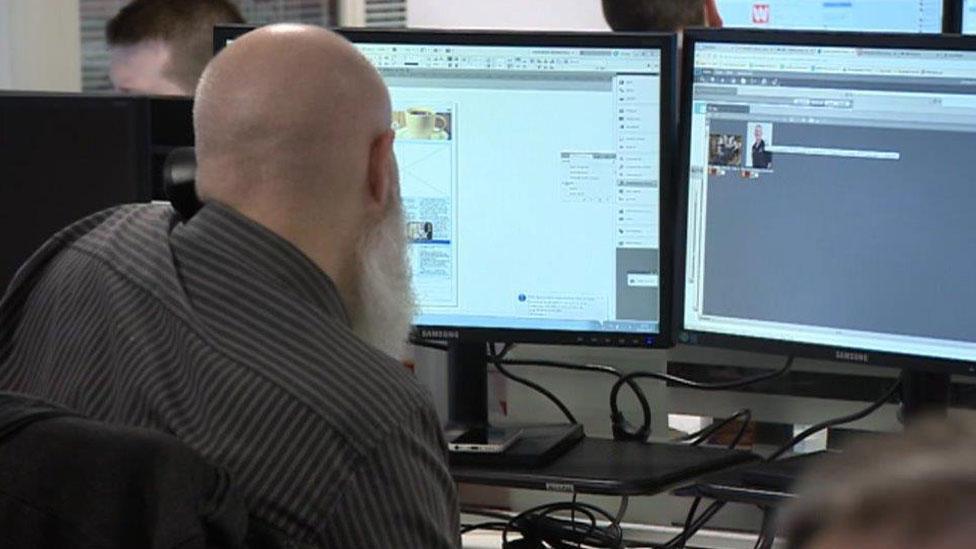Public interest journalism subsidy urged by AMs
- Published
- comments

Wales is 'far from alone in seeing a decline in traditional print newspapers'
Some commercial news operators should be subsidised to promote public interest journalism, a committee of AMs has suggested.
A lack of plurality and changing priorities meant news journalism in Wales needed government support, the report said.
It recommended establishing an arms-length system to provide financial support for some publishers.
Tax breaks for newspaper publications are another suggestion.
The assembly's culture, Welsh language and communications committee took evidence from commercial news providers, the BBC, hyper-local websites and academics.
In its report, News Journalism in Wales, the committee said it believed its position was such that "serious consideration" should be given to some way of subsidising public interest journalism.
It said the current Welsh language model used by the government to subsidise Golwg 360 could be used as a template to fund English language publications.
The committee acknowledged that extending the subsidy to commercial operators would be "contentious" and said any new subsidy would need to ensure ways of protecting editorial freedom from government or official interference.
"This will be difficult and the risks of distorting the market also needs to be considered," it said.

Read more from Huw on this issue:


Committee chair Bethan Sayed AM said: "The decline of commercial news journalism in Wales should therefore concern us all. As in other parts of the world, the circulations of Welsh newspapers have dropped sharply in recent years while online circulation has grown - leading to job-losses, mergers and newspaper closures.
"Wales is far from alone in seeing a decline in traditional print newspapers. However, the Welsh media is smaller and less diverse than other parts of the UK and so the impact of these changes is affecting us disproportionately."
She said the Welsh Government should consider the importance of a diverse media sector as a "strategic priority" and look at ways of supporting it either directly or indirectly.
The report also found that there were many hyper-local news sites in Wales run on a shoestring or manned by volunteers, and that sustaining these sites over the long term required additional funding.
While the committee said the growth in hyper-local sites was encouraging, the report said "it is clear from the evidence we have received that these organisations cannot, alone, plug the gap left by the absence of a robust indigenous print media."
As part of the draft budget agreement with Plaid Cymru the Welsh Government has agreed to ring-fence £100,000 of funding for start-up grants for journalists seeking to set up their own business in hyper-local news.
The committee recommended the money be put into a contestable scheme for existing hyper-locals and new sites, to encourage innovation and improve the sustainability of the industry.
It also called for a change in the rules about advertising government notices, which currently appear in printed newspapers. It said the notices were an "anachronistic and inefficient way of publicising government activity".
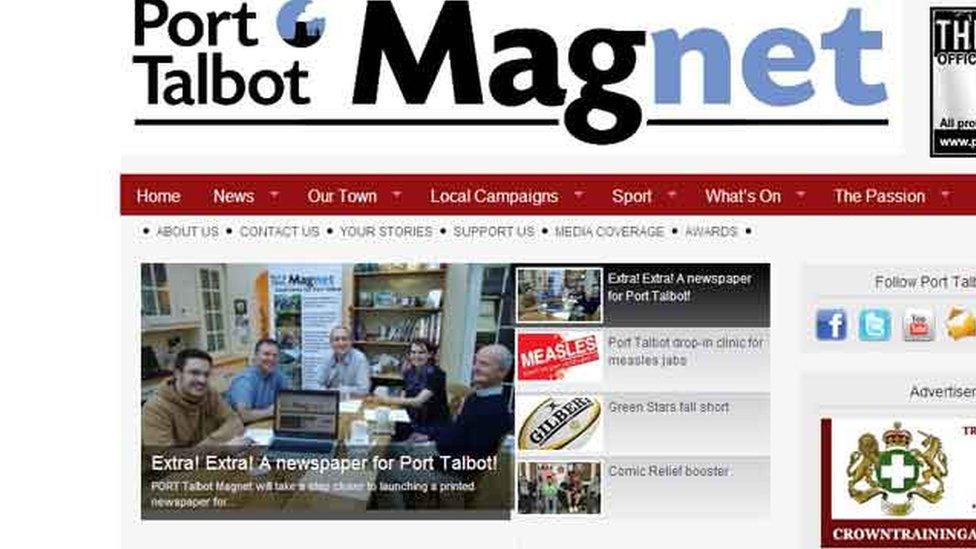
The Port Talbot Magnet survived for seven years
The committee wants the rules changed to allow these notices to be published by online sites, although it acknowledges that this may reduce the cost of advertising for the Welsh government. It wants any savings to be reinvested in supporting public interest journalism.
Dr Rachel Howells, the founder of the Port Talbot Magnet hyper-local site which has now closed, told the committee that local news hubs should be established. These would employ a reporter to cover local issues and share their stories with other publishers and platforms.
The idea is similar to the BBC's existing local democracy scheme, where reporters are based in local communities and provide stories for the BBC as well as a commercial print or broadcast partner.
The committee said it would prefer the BBC to back the news hubs concept which it says "would be a better use of the funding the BBC is providing to embed BBC journalists in other media organisations."
A Welsh Government spokesman said: "The culture minister will carefully consider the report's recommendations before formally responding."
- Published12 July 2017
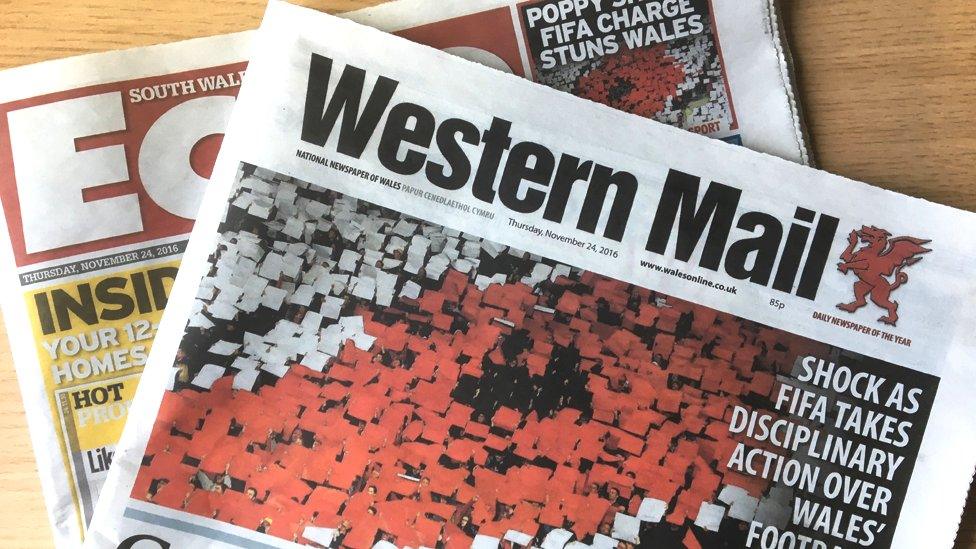
- Published26 April 2017
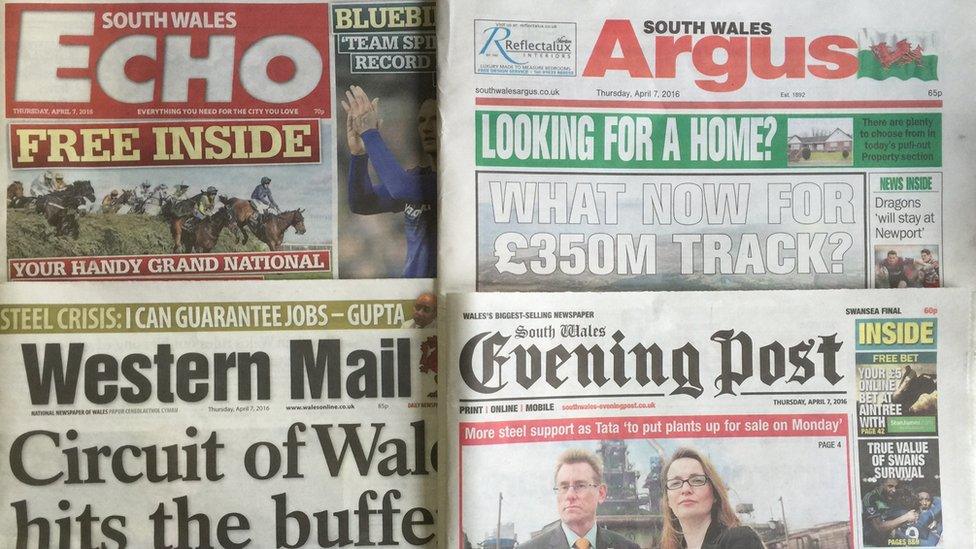
- Published1 March 2018
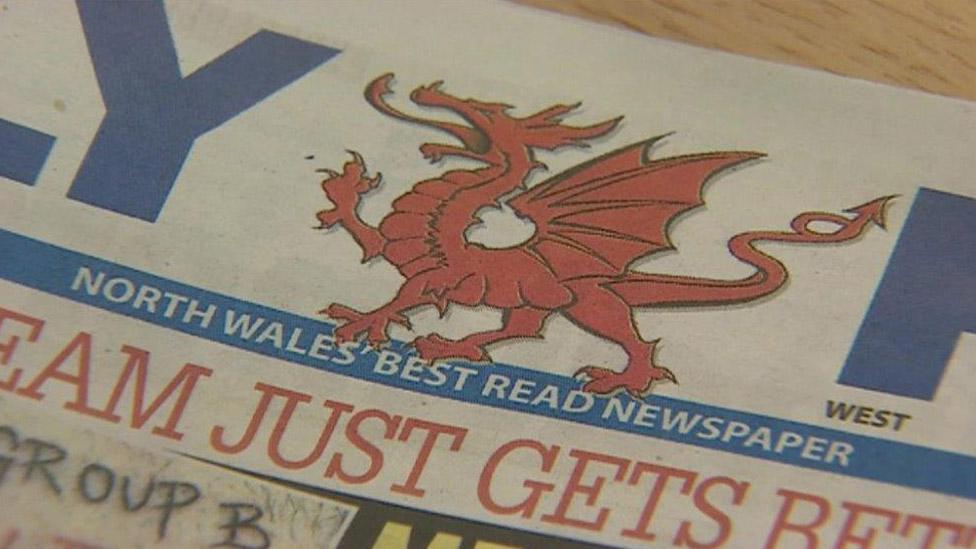
- Published19 March 2017
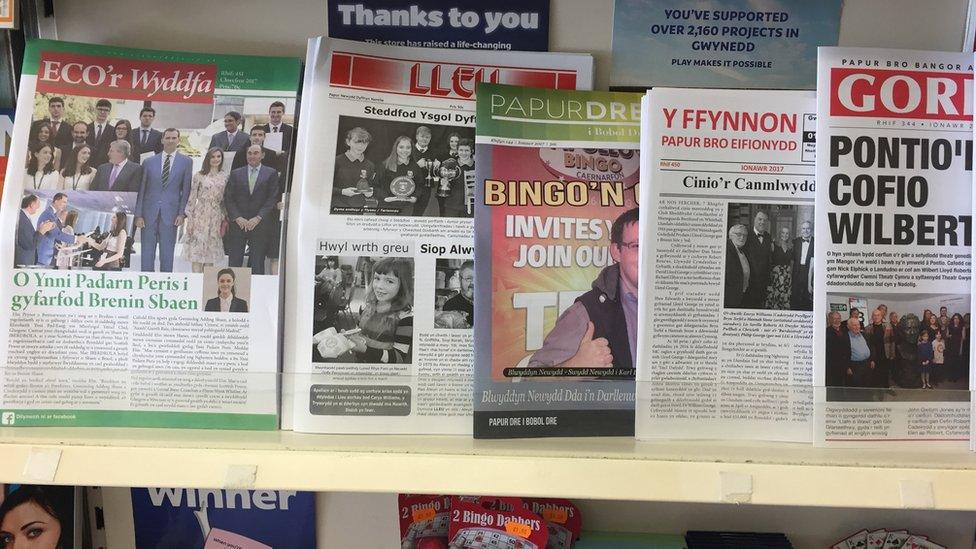
- Published28 February 2017

- Published23 February 2017

- Published14 March 2017
